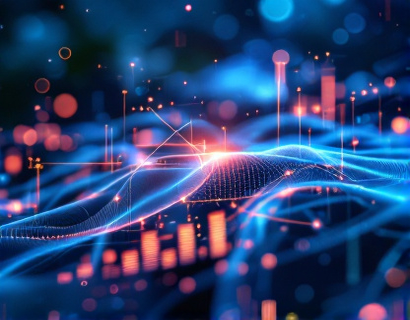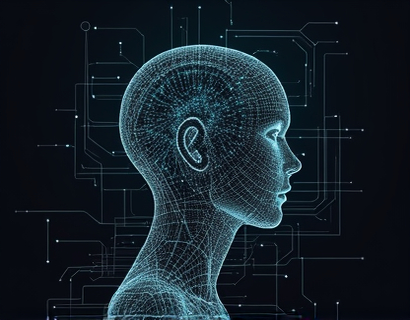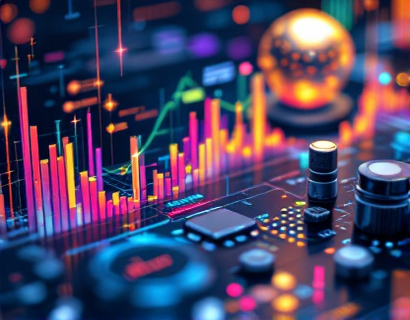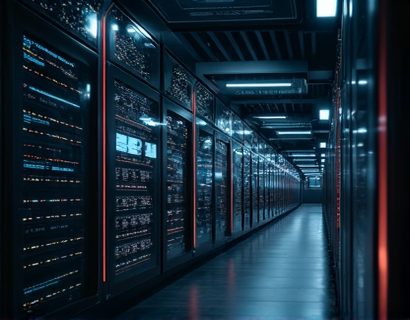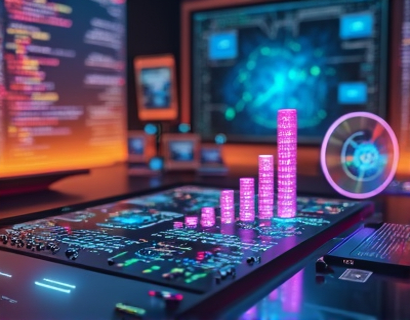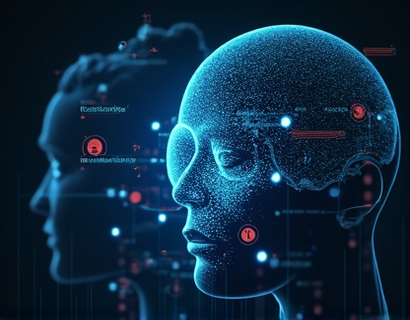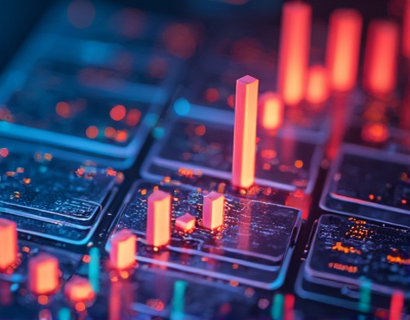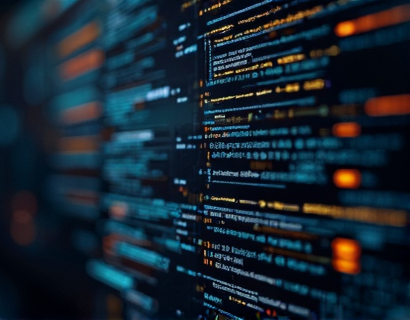AI and Crypto: Unveiling the Future of Intelligent Blockchain Finance Innovations
The integration of Artificial Intelligence (AI) with cryptocurrency and blockchain technology is revolutionizing the financial landscape. This comprehensive guide delves into the future of finance and technology, exploring the dynamic convergence of these two transformative fields. By examining expert insights, resources, and the vibrant community surrounding this intersection, we aim to provide a deep understanding of the innovations shaping the next era of blockchain finance.
Understanding the Basics
To grasp the potential of AI in cryptocurrency and blockchain, it's essential to understand the fundamental concepts of both technologies. Blockchain is a decentralized ledger that records transactions across multiple computers, ensuring transparency, security, and immutability. Cryptocurrency, a digital or virtual currency, uses cryptography for security and operates on a blockchain network.
Artificial Intelligence, on the other hand, involves the simulation of human intelligence processes by machines, particularly computer systems. These processes include learning (the acquisition of information and rules for using it), reasoning (using rules to reach approximate or definite conclusions), and self-correction. When applied to blockchain and cryptocurrency, AI can enhance various aspects such as security, trading, and network management.
Enhancing Security with AI
One of the most significant benefits of AI in blockchain finance is the enhancement of security measures. Traditional security protocols can be vulnerable to sophisticated cyber attacks. AI algorithms can detect and respond to anomalies in real-time, identifying potential threats before they materialize. Machine learning models analyze patterns in transaction data to distinguish between normal and suspicious activities, thereby strengthening the overall security of the blockchain network.
Smart contracts, self-executing contracts with the terms directly written into code, can also benefit from AI. AI can ensure that smart contracts adhere to predefined security protocols and detect any deviations or vulnerabilities. This proactive approach to security can significantly reduce the risk of fraud and unauthorized access.
Optimizing Trading and Investment Decisions
The cryptocurrency market is known for its volatility and complexity. AI-driven analytics can provide traders and investors with valuable insights to make more informed decisions. Natural Language Processing (NLP) techniques analyze news articles, social media posts, and other textual data to gauge market sentiment and predict price movements. This sentiment analysis can help traders identify potential buying or selling opportunities.
Additionally, AI algorithms can process vast amounts of historical and real-time data to identify trends and patterns that humans might miss. Machine learning models can predict future price movements based on these patterns, aiding in strategic investment decisions. Automated trading bots powered by AI can execute trades based on predefined criteria, optimizing returns and minimizing human error.
Improving Network Efficiency
The efficiency of blockchain networks is crucial for their widespread adoption. AI can play a pivotal role in optimizing network performance. For instance, AI algorithms can manage resource allocation, ensuring that network resources are used efficiently and effectively. This includes optimizing the distribution of computing power for mining or validating transactions, reducing energy consumption and lowering operational costs.
AI can also enhance consensus mechanisms, the protocols that ensure all participants in the blockchain network agree on the state of the ledger. Traditional consensus mechanisms like Proof of Work (PoW) are energy-intensive. AI-driven solutions can develop more efficient consensus algorithms, such as Proof of Stake (PoS) variations, which are less resource-intensive and more scalable.
Personalized Financial Services
The intersection of AI and blockchain opens up possibilities for personalized financial services. AI can analyze individual user data to provide tailored financial advice, investment strategies, and risk management solutions. Blockchain ensures that this data is securely stored and managed, giving users greater control over their financial information.
For example, AI-powered financial assistants can monitor a user's financial health, suggest budgeting strategies, and alert them to potential financial risks. These assistants can integrate with various blockchain-based financial services, providing a seamless and secure experience.
Challenges and Considerations
While the potential of AI in blockchain finance is vast, several challenges must be addressed. One major concern is the regulatory landscape. The rapid evolution of these technologies often outpaces regulatory frameworks, leading to uncertainty and compliance issues. It's crucial for stakeholders to work closely with regulators to develop clear guidelines that foster innovation while ensuring consumer protection.
Another challenge is the technical complexity. Integrating AI with blockchain requires a high level of expertise in both domains. Developing robust and scalable solutions demands collaboration between AI researchers, blockchain developers, and financial experts. Education and training programs can help bridge this gap, fostering a skilled workforce capable of driving these innovations forward.
The Role of the Community
The vibrant community of tech enthusiasts and professionals plays a vital role in advancing AI and blockchain finance. Online forums, social media groups, and specialized platforms like Tech-Savvy Innovators and Enthusiasts in Cryptocurrency and Artificial Intelligence provide spaces for knowledge sharing, collaboration, and discussion. These communities are essential for identifying new opportunities, addressing challenges, and fostering a culture of innovation.
Conferences, hackathons, and workshops also serve as important platforms for networking and collaboration. Events like these bring together experts from various fields, facilitating the exchange of ideas and the development of groundbreaking projects. The community's collective effort is crucial in pushing the boundaries of what's possible at the intersection of AI and blockchain.
Future Outlook
The future of AI and blockchain finance is promising, with numerous potential developments on the horizon. One area of focus is the integration of AI with decentralized finance (DeFi) platforms. AI can enhance the functionality of DeFi protocols, making them more user-friendly and accessible. For instance, AI-driven risk assessment tools can help DeFi platforms offer more tailored lending and borrowing options, improving financial inclusion.
Another exciting development is the use of AI in cross-chain interoperability. As the number of blockchain networks grows, the need for seamless interaction between different chains becomes increasingly important. AI can facilitate the development of protocols that enable smooth data and asset transfer across multiple blockchain ecosystems, creating a more interconnected and efficient financial landscape.
Furthermore, the rise of AI-powered non-custodial wallets could revolutionize how users manage their cryptocurrencies. These wallets use AI to provide enhanced security features, such as biometric authentication and behavioral analysis, ensuring that only the rightful owner can access the funds. This combination of AI and blockchain can empower users with greater control and peace of mind.
Conclusion
The convergence of AI and blockchain is poised to transform the financial industry in profound ways. From enhancing security and optimizing trading to improving network efficiency and enabling personalized financial services, the potential benefits are vast. However, realizing this potential requires addressing regulatory, technical, and educational challenges. The vibrant community of innovators and enthusiasts is key to driving these advancements forward. As we continue to explore and develop this intersection, we can look forward to a future where intelligent blockchain finance innovations redefine the way we think about money and transactions.




